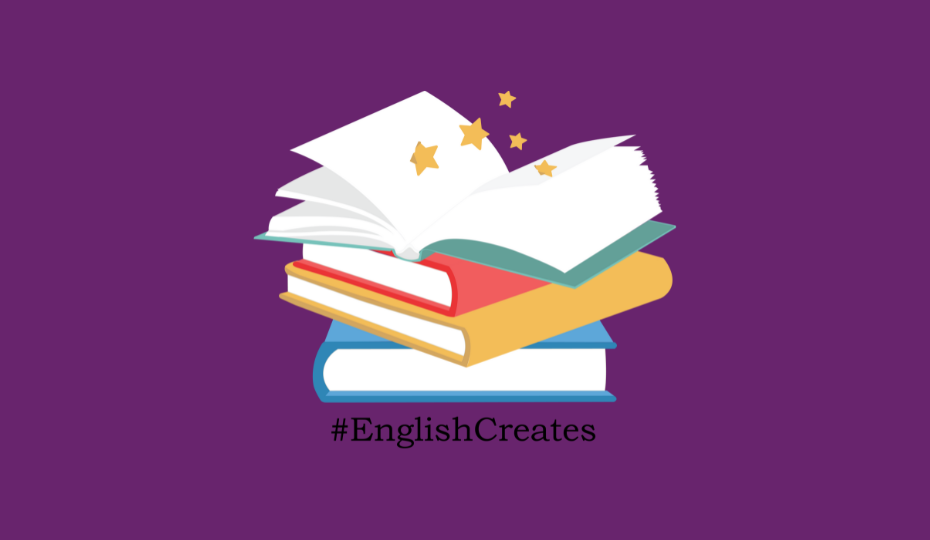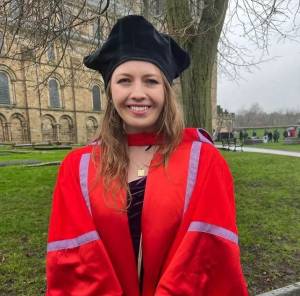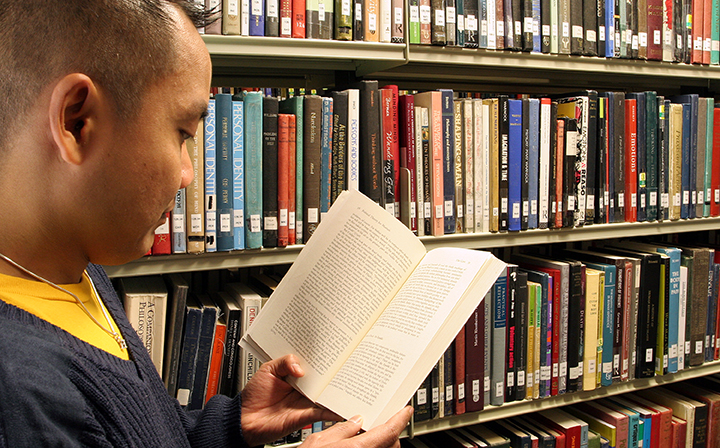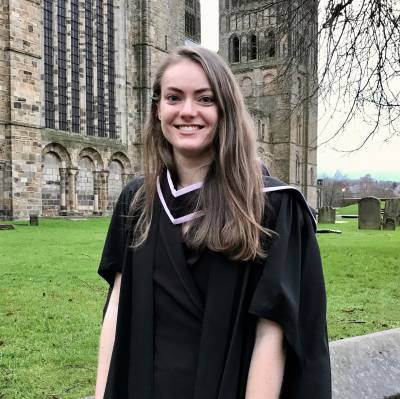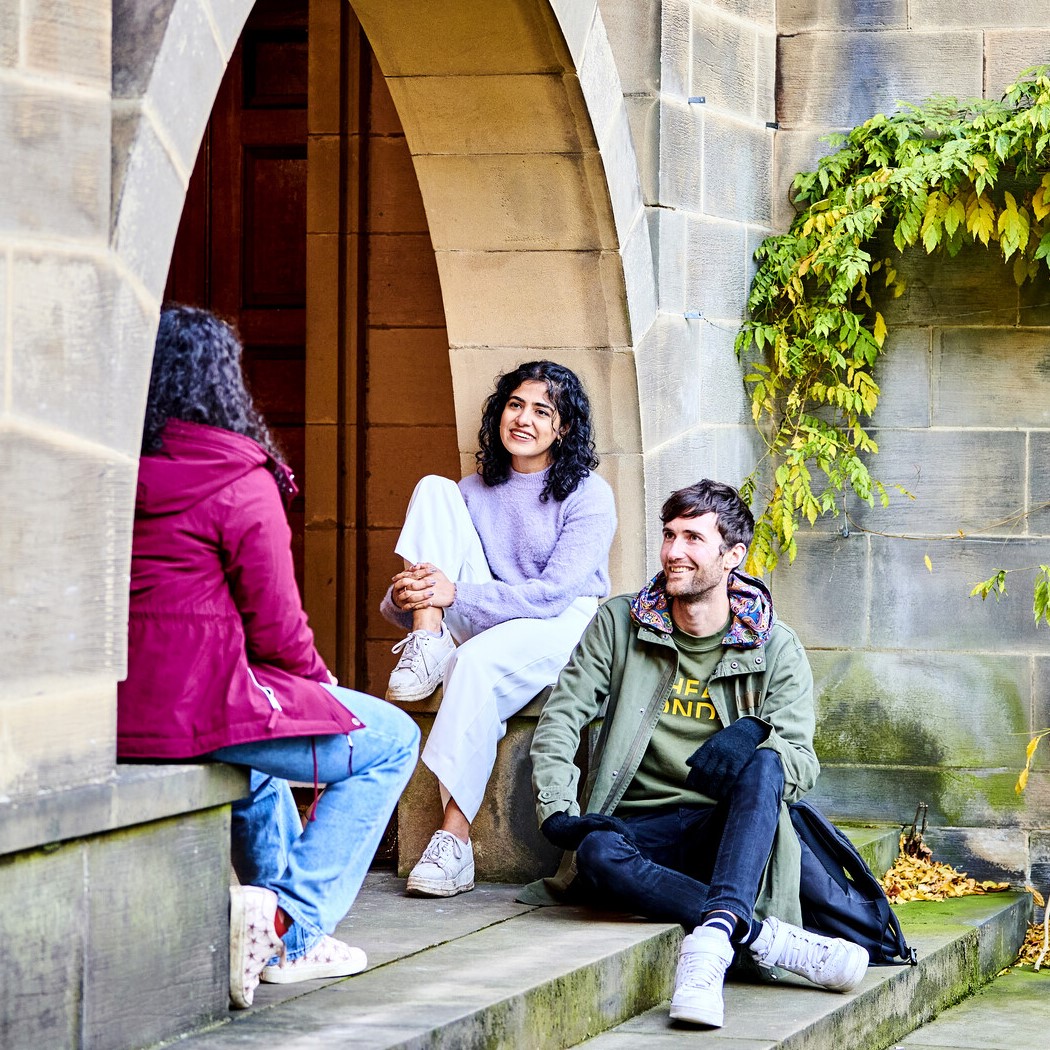#EnglishCreates
#EnglishCreates is a nationwide campaign that has been launched to celebrate both the creative and economic value of an English degree, to challenge perceptions that English is a 'low-value degree', and to fight the trajectory of low uptake at A Level and undergraduate level.
#EnglishCreates Careers
Our current undergraduate, Agnibeena Ghosh, has contributed this video to the #EnglishCreates competition, to express how her degree is currently supporting her career aspirations.
I currently work as a Content Owner for an e-learning app called StudySmarter. My 10 years of researching English Literature and studies in the United States helped me enormously with developing the English Literature and Language curriculum as editing, quality checking, and copywriting our study guides for both UK and US audiences.
Employability
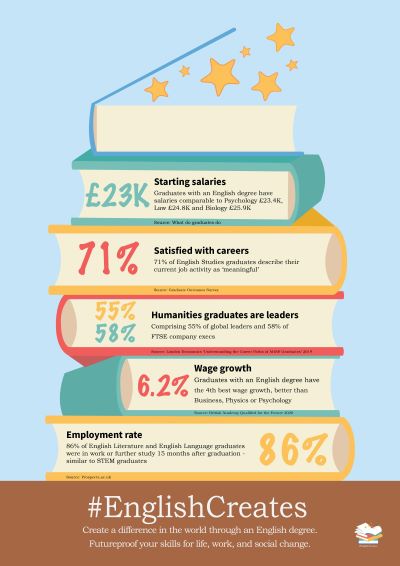 An English degree teaches students crucial skills for employment, and is such a versatile subject that it opens a wide number of possibilities.
An English degree teaches students crucial skills for employment, and is such a versatile subject that it opens a wide number of possibilities.
15 months after graduating, 93% of 2019-20 leavers from Durham University secured employment or went on to further study, and earned an average of £25 500 (Graduate Outcomes Survey).
Like many university English graduates, our alumni go onto all sorts of careers, using their degree skills such as information management, attention to textual detail, analytic ability, as well as oral and written literacy.
This infographic has been produced by the campaign, and highlights the data that shows English compares well to other subjects, including so-called vocational qualifications.
'Countless transferable skills'
Our current masters student Megan Nicholls explains the skills that she has learnt from studying English and the opportunities this will open in her plans to pursue a career in marketing.
The best way to understand the value of an English degree is to look at some of the career trajectories of our graduates. English Studies alumni from Durham University include the broadcaster Jeremy Vine, the actor Ambika Mod, the novelist Alice Oseman, and the influencer and 'resident librarian' of the internet Jack Edwards.
I work in Digital Health Records for the NHS at Queens Medical Centre in Nottingham. Having studied an MA in English Literary Studies, I never thought I would end up working in a hospital, but this shows how broad your opportunities as an English student are after graduation.
English research benefits society
The creative industries are worth £126 billion to the UK economy, more than UK Life Sciences, Aerospace and Automotive sectors combined. English graduates and literature research are a crucial contributor to this.
Here in the North East, for example, we support the regional creative economy with festivals and our cultural presence. In 2023 English Studies academics collaborated with Elysium Theatre Company and Durham Fringe Festival to bring an exciting summer Shakespeare Festival to the public and tourists.
We also collaborate with Durham Book Festival each year, helping to bring people together to celebrate their shared interest in ways that also support the regional economy.
Beyond the immediate economic benefit of English, the subject fosters the cultural understanding we need to address some of the most pressing social and political problems of our times.
I am now an Account Manager at Greenhouse Communications – a PR and communications agency that supports businesses, organisations and activists to tackle the climate crisis and drive positive environmental change.
Medical Humanities
English Studies academics helped pioneer the work of the Institute for Medical Humanities. This was recently awarded a £9 million grant by the Wellcome Trust, reflecting the contribution of medical humanities research to our understanding of health and human experience.
English academics contribute to the Environmental Humanities, in which researchers, students, and partners discover how to adopt a multidisciplinary response to the environmental crisis.
Dr Henghameh Saroukhani has been working on a project related to Windrush, to unravel what would become the potent mythology surrounding the ship, and to track how government officials reacted to the vessel and its passengers.
Legacies of Biafra
Associate Professor of African Literature, Dr Louisa Egbunike, has used art, exhibitions, and film as well as primary research to explore the role of the literary and visual arts in the cultural memory of the Nigeria-Biafra war, and to bring this conflict to attention.
Creative Writing
Millions of people enjoy new stories on the page and screen.
Hag: Forgotten Folktales Retold
Fiction writing is often underpinned by research conducted by literary and other scholars; without the academic study of English, new work would be impoverished. For example, Dr Naomi Booth's Hag was based on careful historical and literary analysis of existing folk stories.
Alumni! You can support #EnglishCreates
If you're an English Studies graduate, you can support the campaign by visiting #EnglishCreates – University English and sharing content on your own social media.
If you currently use your English degree in your career and could inspire future generations, or if you have other ways you might help, please contact alistair.brown@durham.ac.uk.
I live in Paris and work as a communications and campaign manager at the British Embassy. I use languages every day, writing products like social media copy and email marketing newsletters. My degree gave me the confidence to apply for the job, the paperwork to start as an intern, and an understanding of literary techniques used for different audiences.
Inspired to study English?
Find out more about studying English here at Durham.


/prod01/prodbucket01/media/durham-university/external-location-photography-/city-shots-/82922-1920X290.jpg)
